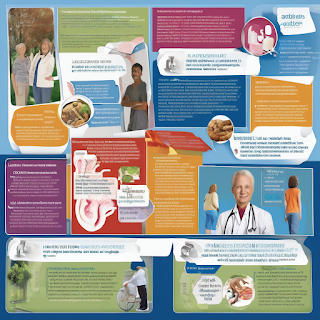Introduction
Colorectal cancer survivors face unique challenges and opportunities when it comes to post-treatment lifestyle modifications. Effective lifestyle interventions can play a pivotal role in improving overall health outcomes, reducing recurrence risks, and enhancing quality of life. This article delves into the most impactful lifestyle changes that can be adopted after colorectal cancer treatment, supported by current research and expert recommendations.
Understanding Colorectal Cancer Treatment and Its Aftermath
The Impact of Colorectal Cancer Treatment
Colorectal cancer treatments, including surgery, chemotherapy, and radiation, can lead to a range of physical and psychological effects. These may include fatigue, weight changes, gastrointestinal issues, and an increased risk of secondary cancers. The post-treatment phase is critical for implementing strategies that mitigate these effects and support recovery.
Essential Lifestyle Interventions for Colorectal Cancer Survivors
1. Nutrition and Diet
Optimal Nutritional Intake
A balanced diet is crucial for recovery and overall well-being. Survivors should focus on:
- High-Fiber Foods: Incorporating fruits, vegetables, whole grains, and legumes can help maintain digestive health and prevent constipation.
- Lean Proteins: Sources such as poultry, fish, and legumes support muscle repair and overall energy levels.
- Healthy Fats: Omega-3 fatty acids from sources like fish, flaxseeds, and walnuts can help reduce inflammation and support heart health.
- Hydration: Adequate water intake is essential for maintaining optimal bodily functions and preventing dehydration.
Dietary Adjustments
Post-treatment dietary adjustments may include:
- Low-FODMAP Diet: For those experiencing gastrointestinal issues, a low-FODMAP diet can reduce symptoms like bloating and gas.
- Limit Processed Foods: Reducing intake of processed and sugary foods can help manage weight and lower the risk of other health issues.
2. Physical Activity and Exercise
Exercise Benefits
Regular physical activity is instrumental in enhancing physical fitness, managing weight, and improving mood. Recommended activities include:
- Aerobic Exercises: Activities like walking, swimming, and cycling help boost cardiovascular health.
- Strength Training: Incorporating resistance exercises helps build muscle mass and improve bone density.
- Flexibility Exercises: Yoga and stretching improve flexibility and reduce stress.
Tailored Exercise Programs
Exercise programs should be tailored to individual capabilities and preferences. Consulting with a healthcare provider or physical therapist can help create a personalized plan that addresses specific needs and goals.
3. Mental Health and Emotional Well-being
Stress Management
Effective stress management techniques are essential for mental health. Survivors can benefit from:
- Mindfulness and Meditation: Practices such as mindfulness meditation can reduce stress and improve emotional well-being.
- Counseling and Support Groups: Engaging in therapy or support groups provides emotional support and coping strategies.
Building Resilience
Developing resilience through positive thinking, setting achievable goals, and maintaining a strong support network contributes to overall mental health.
4. Regular Medical Follow-ups and Screening
Ongoing Monitoring
Regular follow-ups with healthcare providers are crucial for monitoring recovery and detecting any recurrence of cancer. Recommended practices include:
- Routine Check-ups: Regular appointments with oncologists for physical exams and necessary tests.
- Screening Tests: Periodic screenings such as colonoscopies and imaging tests to ensure early detection of any abnormalities.
5. Lifestyle Modifications and Preventative Measures
Avoiding Harmful Behaviors
Lifestyle modifications to avoid include:
- Smoking Cessation: Quitting smoking reduces the risk of secondary cancers and improves overall health.
- Limiting Alcohol Intake: Reducing alcohol consumption lowers the risk of cancer recurrence and liver disease.
Preventive Health Measures
Incorporating preventive measures can further enhance health outcomes:
- Vaccinations: Staying up-to-date with vaccinations, such as for influenza and pneumonia, can prevent infections.
- Healthy Weight Management: Maintaining a healthy weight through diet and exercise can reduce the risk of various health conditions.
Conclusion
Implementing lifestyle interventions post-colorectal cancer treatment is essential for promoting recovery, enhancing quality of life, and reducing the risk of recurrence. By focusing on balanced nutrition, regular physical activity, mental health support, ongoing medical monitoring, and preventative measures, survivors can achieve better health outcomes and a more fulfilling life.

